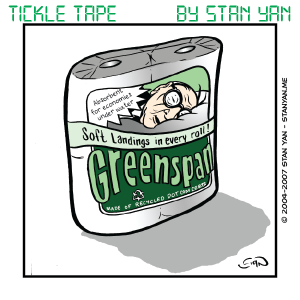Trading is much like playing a sport. You’ve got to find the right moment, and when it happens to come along, you must act decisively. You can’t choke; otherwise, you’ll miss a major trading opportunity. Many times, the pressure is on you to perform when you trade. Your money is on the line. There’s a good chance that you’ll lose it, and if you do, you may feel a little hurt and defeated. As with any activity where the outcome matters, trading can provoke anxiety. The consequences of making a mistake can seem immense and it is hard to perform with grace under such extreme pressure. You can’t let the pressure get to you, however. You must trade freely and effortlessly. It may be hard to do, but you can take a few specific steps to trade in a peak performance mindset.
It is one thing to say that you don’t care about the outcome of a trade, but it is quite another thing to actually not care. The best way to minimize the significance is to actually change the conditions under which you trade. It’s hard to pretend the outcome of a trade doesn’t matter when you know in the back of your mind that the outcome does indeed matter.
If you are trading money that you can’t afford to lose, then the outcome matters. If you are aggressively trading money you need to pay off bills, then it is hard to fool your psyche into thinking that the outcome just doesn’t matter. The fact is that when you trade, you are taking a risk and the outcome is far from certain. Every time you make a trade, you may lose your stake. If you can afford to lose your stake, you won’t feel much stress.
But if you cannot afford to lose the money you trade, then it is wise to build up your account balance before you trade actively. Take a hard look at your budget. Take active steps to save up money until you can afford to lose the money you trade. There’s nothing wrong with staying out of the markets for a while until you are ready to trade actively. You can spend time paper trading, reading about the markets, or taking trading courses as you save up money to invest at a later time. In the end, you need to have adequate capital to trade profitably. You must cover commissions, drawdowns and other trading expenses. Don’t underestimate the actual costs you must pay in order to trade.
If you do have a large trading account, then it is essential to manage risk. By risking very little on a trade, you’ll feel more carefree. You may consider risking only a small percentage of your account on any single trade or using stop-loss orders to minimize the amount of money you can lose. Risk management can have tremendous psychological benefits. You’ll feel protected and it will help you actually not care about trading outcomes.
It is also vital to put your psychological house in order. The biggest conflict traders face is struggling with their ego. Many people are thin-skinned. The markets can be brutal. When you trade and lose, it can hurt your self-esteem if you take things too personally. Trading is a game where many people lose. Winning traders know how to pick themselves up after a fall. They look at setbacks as a challenge, a way to hone their trading skills.
They don’t wallow in self-pity or beat themselves up. Most people think that the worst-case scenario is unbearable. They believe it would be difficult to face the possibility that they can’t trade profitably or that it will be harder than they ever imagined, for example. Winning traders aren’t afraid to examine these possibilities and accept them. When people examine the worst-case scenario, they usually find that it may be unpleasant but it is far from unbearable.
By looking at your fears, acknowledging them, and taking active steps to overcome them, you’ll find that you will neutralize your fears, and devise creative ways to move beyond them. There is no reason to minimize the hardships of trading. Trading is risky. Trading is challenging and many people who try trading just don’t make it. Avoiding these facts isn’t going to help you. Unless you face these unpleasant truths, they will lurk in the back of your mind and impact you.
Ultimately, you must trade as if you don’t care about the outcomes. You can try to fool yourself into thinking that you don’t care (and perhaps you are the kind of person who never cares about anything and you just really don’t care; most people do care about outcomes, though), but if you trade with money you can’t afford to lose, you’ll feel the pressure. Face the facts. Trading is hard and risky. If you can truly accept the fact that you will often be wrong and lose, you will trade more freely and more profitably.


